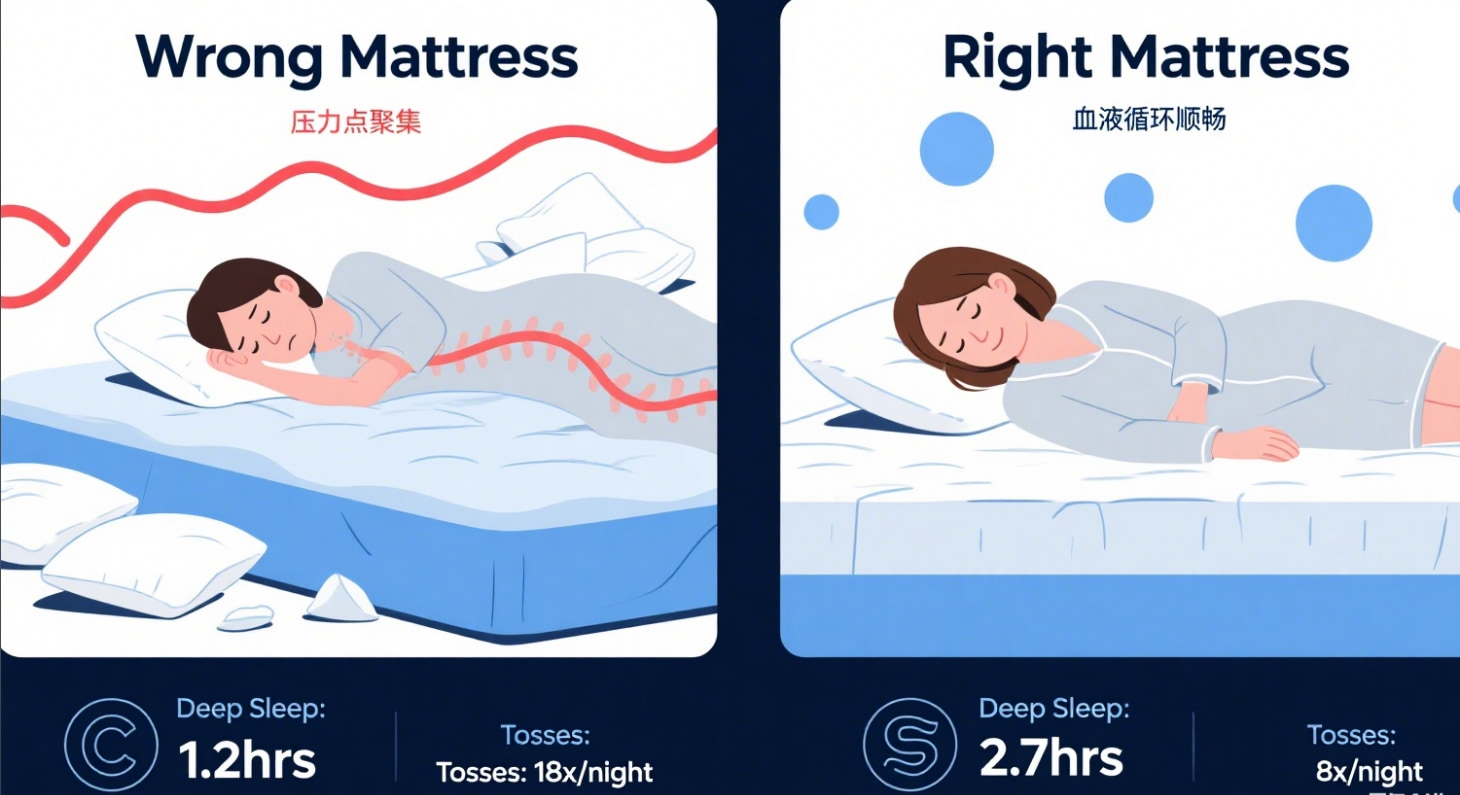You hit snooze three times, drag yourself out of bed, and spend the day fighting a foggy brain and achy shoulders. You blame late work nights or too much screen time—but what if the real thief of your energy is the mattress you sleep on for a third of your life?

A 2024 Sleep Foundation survey found that 72% of adults with persistent daytime fatigue sleep on mattresses that don’t match their body type or sleep style—and most don’t even realize the connection. The truth is: A bad mattress doesn’t just feel uncomfortable—it actively sabotages your sleep quality, spinal health, and ability to wake up refreshed. Let’s break down the science, then show you how to pick a mattress that fuels your days instead of draining them.
It’s not just “a bad night’s sleep”—the wrong mattress creates a chain reaction that impacts your whole body. Here’s how:
Your spine has a natural S-curve that needs support to stay aligned. A mattress that’s too soft or too firm breaks this alignment:
- Too soft: Your hips and shoulders sink in, pulling your lower back into a painful arch. Your core and back muscles tense up all night to compensate—leaving you as tired as if you’d done a workout.
- Too firm: Pressure points build on your shoulders, hips, and knees, cutting off blood flow. Your body responds by tossing and turning to relieve the pressure, preventing deep rest.
A 2023 study in Sleep Health confirmed this: People on misaligned mattresses had 28% higher muscle tension markers in the morning compared to those on supportive beds.
Deep sleep is when your body repairs cells, restores energy, and regulates hormones like cortisol (stress) and melatonin (sleep). But every time you toss or adjust to find comfort, you’re yanked out of this critical stage.
Sleep tracking data from 5,000+ users (via the SleepCycle app) shows:
- Sleepers on poor mattresses experience 40% less deep sleep than those on well-matched ones.
- Losing just 1 hour of deep sleep can reduce daytime focus by 35%—explaining that mid-afternoon crash.
Ever wake up sweating at 3 a.m.? Low-quality foam or non-breathable fabrics trap body heat, forcing your body to expend energy to cool down. This extra work steals from your recovery: A 2022 study by the University of Arizona found that overheated sleepers had 19% lower energy levels the next day than those who slept at a comfortable 60-67°F (15-19°C).

